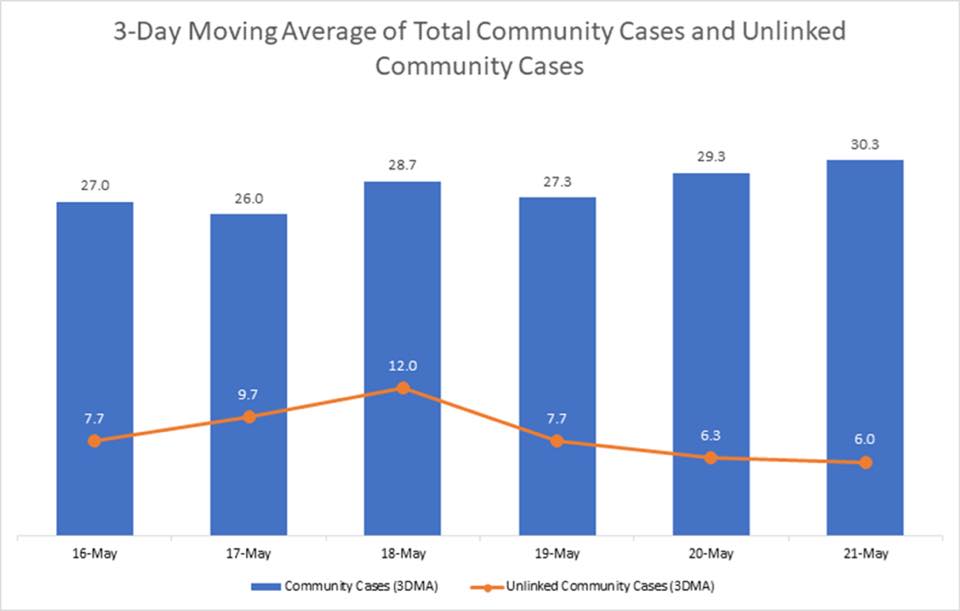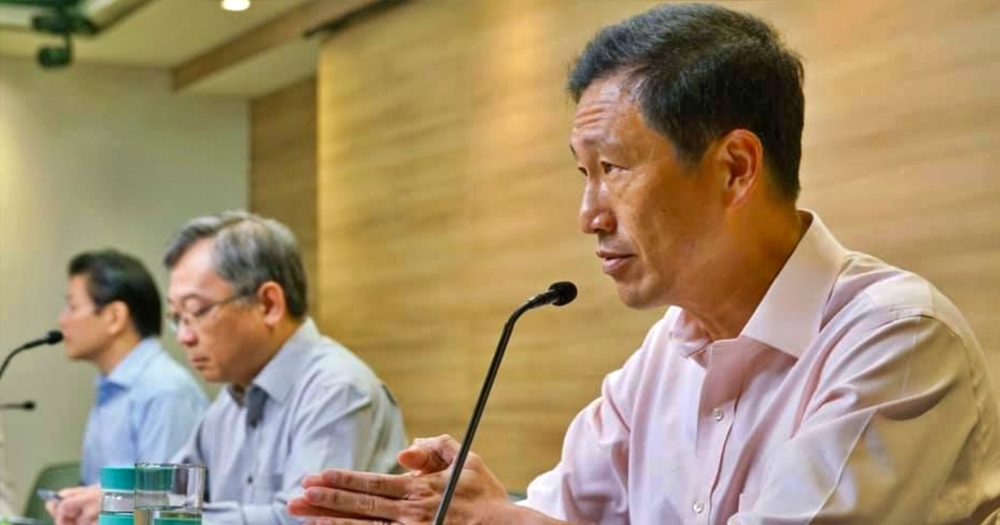Singapore's health minister Ong Ye Kung has answered another four frequently asked questions (FAQs) about the Covid-19 pandemic in Singapore via his Facebook page on May 23, 2021.
Answering FAQs about Covid-19 in Singapore
"I heard situation is getting very bad. Is that true?"
One of the questions asked is if the Covid-19 situation in Singapore is "very bad".
Ong replied that the claim is "not quite" true.
He explained that Singapore has been hovering around the same number since May 16.
Ong also provided a graph to show the three-day moving average number of total community cases and unlinked community cases.
 Image from Ong Ye Kung/FB.
Image from Ong Ye Kung/FB.
"We are monitoring the situation closely; to see if we are trending up, down or flat," said Ong.
"But we are doing so much special ops, going to HDB blocks to test people. That must be bad?"
Ong also tackled a follow-up question regarding the testing of residents in specific HDB blocks.
The question asked if the testing of HDB residents reflects the "bad" situation Singapore is in.
Ong clarified that testing is an effective way to prevent further spread of the virus.
He added that Singaporeans "should feel safer" when hearing about testing operations, such as the ones at HDB blocks.
"They help us detect and isolate people early, including persons who are asymptomatic or mildly symptomatic and would otherwise be missed. We will be doing even more testing and surveillance moving forward."
"I heard many vaccinated people are infected and no point getting vaccinated. Is that true?"
Another question Ong addressed is related to vaccines.
As there were cases of vaccinated people getting infected with Covid-19, some people have questioned the point of getting vaccinated.
Ong said that currently, there are 78 vaccinated individuals in Singapore who have been infected with Covid-19, many of whom are frontline workers.
This number is smaller compared to about 300 unvaccinated Covid-19 infections in Singapore.
Ong also explained that international studies continue to show that vaccinations are "very effective in preventing infections, and severe illnesses."
"I heard the new B.1.617 variant is airborne and very contagious. Is that true?"
There have also been concerns about the B.1.617 variant, and whether it is "airborne and very contagious".
Ong clarified that the variant spreads the same way as Covid-19.
Covid-19 spreads when a person coughs, sneezes, talks or sings, through droplets and aerosols in the air.
The health minister also explained that the risk of transmission is "multi-factorial".
Some of these factors include limited airflow and poor ventilation, and large majority of the cases occur when close interactions take place in enclosed places, without masks.
Hence, said Ong, restaurants are closed and big gatherings are no longer allowed in Singapore.
Ong also said that a big proportion of infections now come from homes.
"To protect your family members, see a doctor immediately if unwell," he added.
You can read Ong's Facebook post here:
Related story
Top image from Ong Ye Kung/FB.
If you like what you read, follow us on Facebook, Instagram, Twitter and Telegram to get the latest updates.
